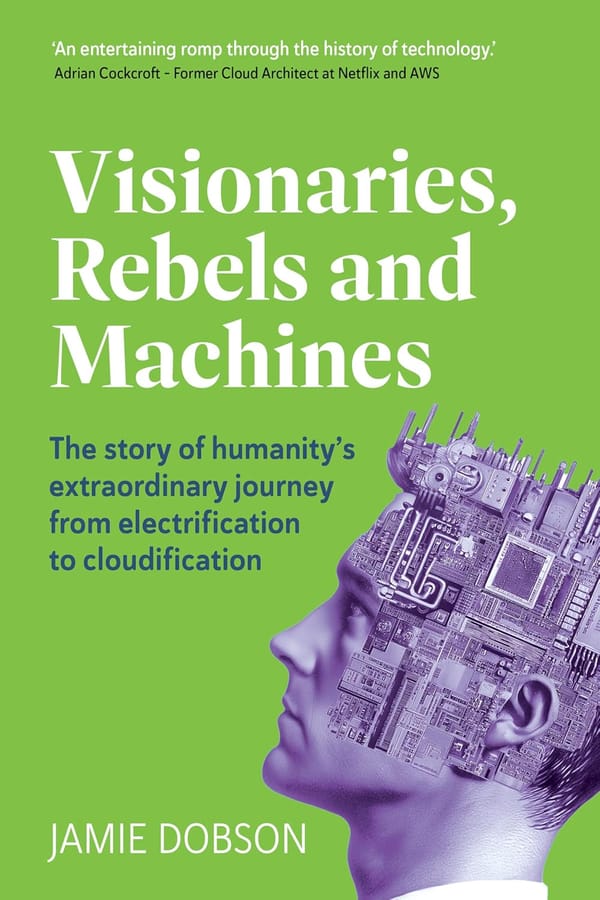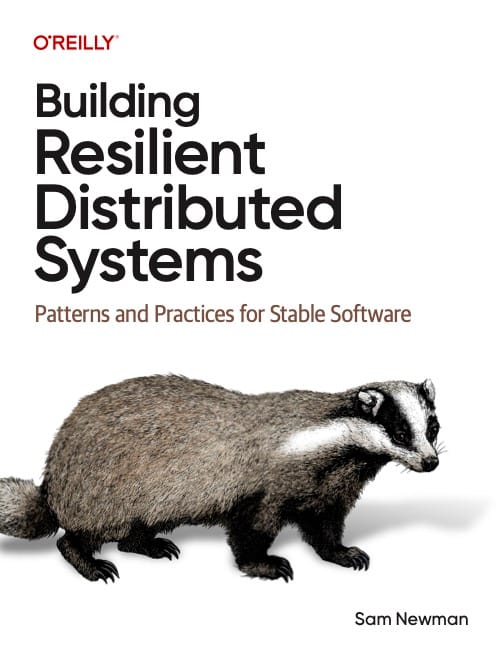May Update

Continuing in my theme of getting the monthly updates done just in time, this one should hopefully reach folks in Australia & New Zealand in May - which is a definite improvement over last week. In many ways, my commitment to making this newsletter something which comes out monthly is an exercise in personal improvement, to which you are all witnesses. If I start backsliding of course, you'll all get to witness that too, so you all have that to look forward to.
As I write this I am in Budapest for Craft Conf, which for many reasons has been one of my favourite conferences for many years now. The sun is shining, and I am surrounded by old trains (the conference venue is the Hungarian train museum). Whilst I’ve always had a great time in Hungary, I know the last few years have been difficult for many locally, especially recently. My thoughts go out to those of you impacted, and I hope things get better before too long.
Book Update
After slow progress in the last couple of months, I was glad to a chapter on message brokers finished and handed over for the first pass of editing. Once it’s had at least a partial tech review, it’ll make its way over to early access, which will likely happen around mid June.
This chapter looks at the role brokers can play in improving distributed system resilience, and also how you can get the most out of them. I’ve included a few useful broker-related patterns (including heartbeat messages, consumer-managed inbox, transactional outbox patterns), and this made me reflect on how I’ll be highlighting patterns throughout the book. Long story short I’ve had a rethink to give patterns a bit more focus, and at some point in the future I’ll revisit the earlier chapters to do something similar there later on. For those of you who have read monolith to microservices, it’s not a million miles away from what I did there, just I hope with a bit more refinement.
With that chapter handed over for review, it means I can focus on a chapter on progressive collapse. In a similar vein to the thundering herd chapter, this looks at a general class of failure, and examines what we can do to halt it. In short, a progressive collapse is caused when an initial fault causes a massively outsized failure. Think of a single service failing causing an entire system to go down. So far it’s been a fun chapter to do research for, although a lot of the examples of progressive collapse I’ve looked at have been somewhat grim.
Things I Have Found
A bit light this week in terms of interesting things I've read, as I was in writing rather than research mode for much of May, so just a few of useful tools I'm playing around with.
- I have been using Arc as a desktop browser for a while. I like some of the UI things it does, and how it makes me feel more organised in what I do. However I’ve been wary about some of the other things the company behind it have been doing, and their decision to essentially end of life Arc in favour of a new “AI browser” means I am looking elsewhere. It’s early days, but the open source Zen browser seems promising. It obviously takes a lot of design cues from Arc, although is open source and based on the Firefox rendering engine rather than chromium.
- Note taking as always been an issue for me. I’ve not found many things that stuck, aside from Agenda. The fact that I can link it to calendar invites means that it’s been perfect for capturing notes from client calls. That said it really is a bit restrictive in terms of how it wants you to use the tool. With that in mind I’m giving Obsidian a try, which is much closer to a personal wiki, albeit with a huge community around it building interesting plugins. With agenda providing very simplistic ways of organising notes, Obsidian gives me too many options, so I think I’ll need to experiment a bit to find the right balance.
- I have also started making some use of NotebookLM to help my research. This allows me to curate the sources used by the LLM. So I can upload papers, articles etc, and can then use the chat interface to sift the information. It’s very much like having a research assistant that is very analytical, albeit one I don’t yet trust to find information on its own. It’s the first “AI” tool I’ve used for the book - I will be including a note around the use of any AI tooling (generative or otherwise) in the final book, but I have zero plans to use them to draw pictures or write words. That’s my job!
Upcoming Events
- I'll be delivering two workshops and a talk at GOTO Copenhagen, which runs from September 29th - October 3rd.
- O'Reilly Superstream: The Path To Staff Engineer, June 26th. I've been helping run some O'Reilly's superstreams for several years now, and I'll be MC for this event. Think of them as curated half-day single track conferences. This one is focusing on how to become a staff engineer, and once you get the job, how to do it well. I'm glad that alongside the more complex technical subjects we cover that we can afford to find space to cover a wider range of topics. This event is for O'Reilly subscribers - but given the wealth of content available there, it's well worth the price!
I'll also have events to announce later in the year for the Netherlands, India, Japan and hopefully also Thailand. So watch this space.
That'll do for now, see you all next month!


